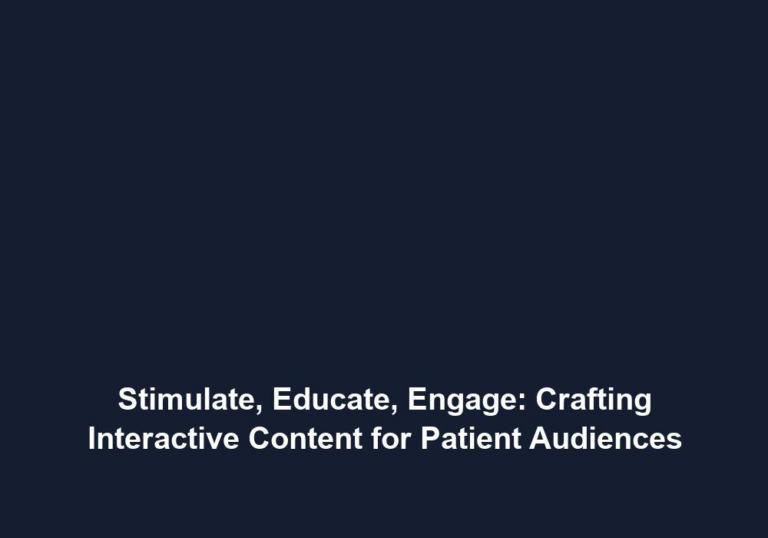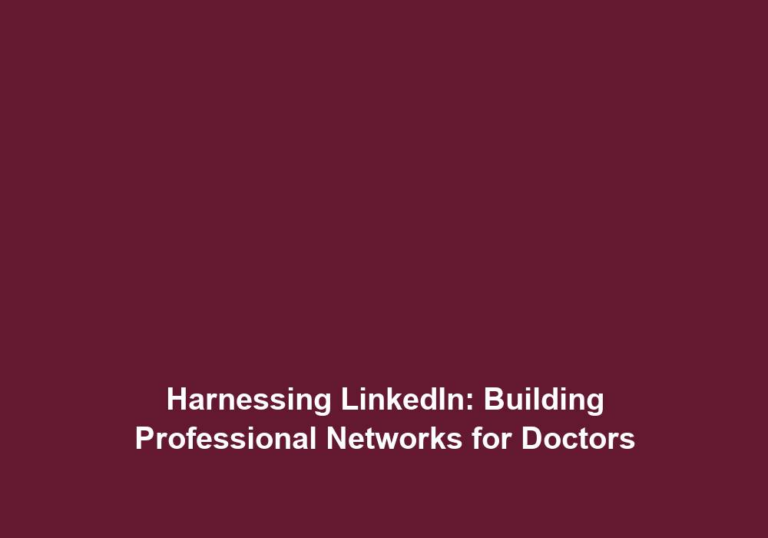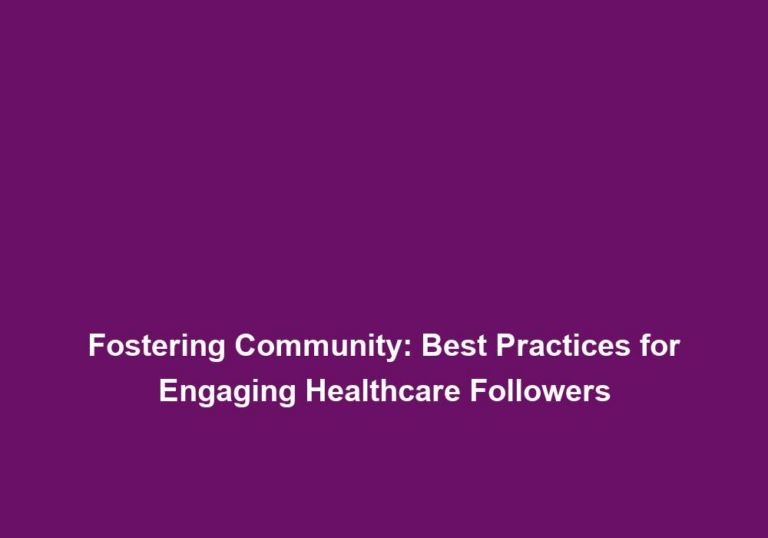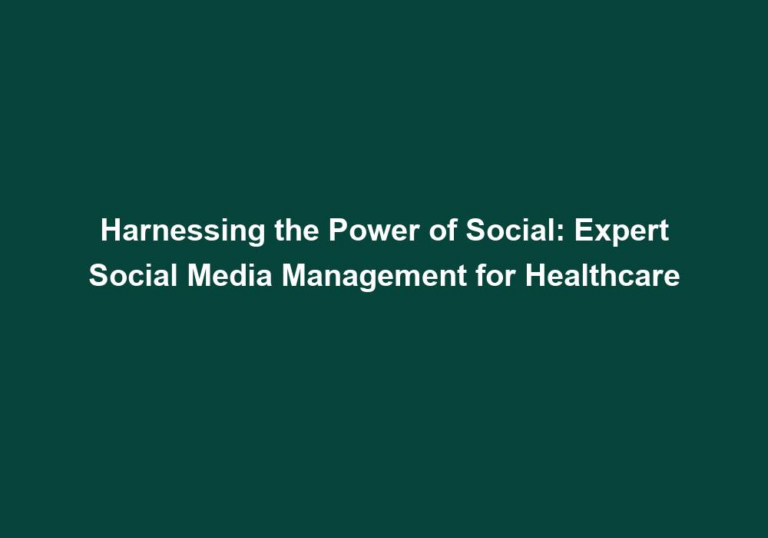Protecting Your Practice: Reputation Management in Social Media for Healthcare
In today’s digital age, social media has become an integral part of our lives, shaping how we communicate and interact with one another. This holds true for the healthcare industry as well, where social media platforms have emerged as powerful tools for providers to engage with patients, share information, and build their reputation. However, the openness and accessibility of social media can also pose significant risks to healthcare practices if not managed effectively. This is where reputation management in social media becomes crucial for healthcare professionals.
Why Reputation Management Matters in Social Media
The reputation of a healthcare practice is of utmost importance, as it significantly impacts patients’ trust, loyalty, and decision-making when it comes to choosing a healthcare provider. With the increasing reliance on online platforms for information and reviews, social media has become a go-to resource for patients seeking healthcare services.
Here are some key reasons why reputation management in social media is essential for healthcare professionals:
-
Impact on Patient Trust: A positive online reputation can greatly influence a patient’s trust in a healthcare practice. When potential patients see positive reviews and experiences shared by others, they are more likely to choose your practice over competitors. On the other hand, negative reviews or misinformation can erode trust and deter patients from seeking your services.
-
Patient Decision-Making: Patients often turn to social media platforms to gather information about healthcare providers before making a decision. They rely on reviews, feedback, and testimonials from other patients to evaluate the quality of care and reputation of a practice. Effective reputation management ensures that accurate and positive information is available to potential patients, influencing their decision-making process.
-
Brand Image and Perception: Social media platforms provide an opportunity for healthcare practices to shape their brand image and perception. By actively engaging with patients, sharing positive patient stories, and highlighting successes, providers can create a positive narrative around their practice. Reputation management ensures that this narrative remains consistent and aligns with the practice’s values and goals.
Key Strategies for Reputation Management in Social Media
- Monitor Your Online Presence: Regularly monitoring social media platforms and online review sites allows healthcare practices to stay updated on what patients are saying about their practice. This includes not only their official accounts but also mentions and discussions related to the practice across social media channels. By staying informed, healthcare professionals can address any issues or concerns promptly.
Here are some additional strategies for effective monitoring:
- Set up Google Alerts to receive notifications whenever your practice is mentioned online.
- Use social listening tools to track conversations and sentiment about your practice.
- Monitor industry-specific forums and online communities to identify any potential reputation risks.
- Engage with Patients: Actively engaging with patients on social media platforms is a crucial aspect of reputation management. By responding promptly and professionally to both positive and negative feedback, healthcare professionals demonstrate their commitment to patient care and build trust.
Here are some tips for engaging with patients effectively:
- Respond to all comments and messages in a timely manner.
- Address concerns and questions with empathy and accuracy.
- Provide helpful information and resources to patients seeking guidance.
- Show appreciation for positive feedback and testimonials.
- Educate Your Team: Training your staff on proper social media etiquette and the importance of maintaining a positive online presence is vital for reputation management. They should understand the impact their actions can have on the practice’s reputation and the need to represent the practice professionally.
Consider implementing the following training initiatives:
- Provide clear guidelines on what is acceptable and unacceptable behavior on social media platforms.
- Train staff members on how to handle patient interactions and respond to reviews effectively.
- Educate them about the potential consequences of sharing protected health information (PHI) and the importance of patient privacy.
- Highlight Positive Patient Experiences: Sharing positive patient stories, testimonials, and success stories on social media platforms is a powerful way to build trust and counter any negative reviews or misinformation that may be circulating online. By showcasing the positive experiences of patients, healthcare professionals can reinforce their practice’s reputation and attract potential patients.
Here are some ways to highlight positive patient experiences:
- Create dedicated posts or videos featuring patient success stories.
- Share patient testimonials and reviews on social media platforms.
- Encourage patients to share their positive experiences with your practice online.
- Address Negative Feedback: It is important to acknowledge and address negative feedback promptly and constructively. While it may be impossible to please everyone, healthcare professionals should respond professionally and offer solutions or explanations when necessary. This demonstrates a commitment to patient satisfaction and helps mitigate the impact of negative reviews.
Consider the following steps when addressing negative feedback:
- Respond to negative comments with empathy and understanding.
- Offer a genuine apology if appropriate.
- Provide an explanation or solution to address the concerns raised.
- Encourage further offline communication to resolve the issue privately.
- Maintain Consistency: Consistency in messaging and branding across all social media platforms is crucial for reputation management. By using the same logo, colors, and tone of voice in posts, healthcare professionals reinforce their practice’s identity and build trust with patients.
Here are some tips for maintaining consistency:
- Create brand guidelines that outline the preferred visual elements and tone of voice.
- Use templates or predefined formats for social media posts.
- Ensure that all staff members are aware of the practice’s branding guidelines.
- Encourage Patient Reviews: Actively encouraging satisfied patients to leave reviews on reputable platforms such as Google Reviews or Healthgrades is an effective way to strengthen a practice’s online reputation. Positive reviews can help counterbalance any negative feedback and provide potential patients with reassurance about the quality of care provided.
Consider the following strategies for encouraging patient reviews:
- Send follow-up emails or text messages to patients after their visit, thanking them for their feedback and encouraging them to leave a review.
- Display signage in the practice’s waiting area or reception area, reminding patients to share their experiences online.
- Provide easy-to-follow instructions on how to leave a review on popular review platforms.
- Stay Compliant with Privacy Laws: When engaging with patients on social media, healthcare professionals must adhere to patient privacy laws and regulations, such as the Health Insurance Portability and Accountability Act (HIPAA). Protecting patient privacy is crucial to maintaining trust and avoiding legal implications.
Here are some guidelines to ensure compliance with privacy laws:
- Avoid sharing any protected health information (PHI) on social media platforms.
- Train staff members on the importance of patient privacy and the potential consequences of violating HIPAA regulations.
- Implement strict social media policies that outline acceptable practices regarding patient privacy.
Benefits of Effective Reputation Management
Implementing effective reputation management strategies for your healthcare practice can yield numerous benefits, including:
-
Enhanced Online Reputation: Building and maintaining a positive online reputation significantly impacts patient trust and loyalty. A strong reputation increases the likelihood of attracting new patients and retaining existing ones.
-
Improved Patient Experience: Actively engaging with patients on social media platforms allows healthcare professionals to address their concerns, answer questions, and provide accurate information. This leads to an improved patient experience and fosters a sense of trust and satisfaction.
-
Mitigation of Negative Impact: Proactively managing your online reputation enables you to address negative feedback promptly and mitigate its impact on your practice. By addressing concerns professionally and providing solutions, you can minimize the potential damage caused by negative reviews.
-
Increased Referrals: A positive online reputation can lead to increased referrals from satisfied patients. When potential patients see positive reviews and experiences shared by others, they are more likely to choose your practice over competitors.
-
Building Trust and Credibility: Consistently managing your online reputation builds trust and credibility with patients. When they see that you actively address feedback, provide accurate information, and prioritize patient care, their confidence in your practice grows.
Conclusion
In the age of social media, reputation management for healthcare practices is an essential aspect of maintaining a positive online presence. By proactively monitoring and engaging with patients on social media platforms, addressing concerns professionally, and highlighting positive patient experiences, healthcare professionals can build a strong reputation and foster patient trust and loyalty. Implementing effective reputation management strategies not only mitigates the impact of negative reviews but also enhances the overall patient experience and helps in attracting new patients to your practice.







